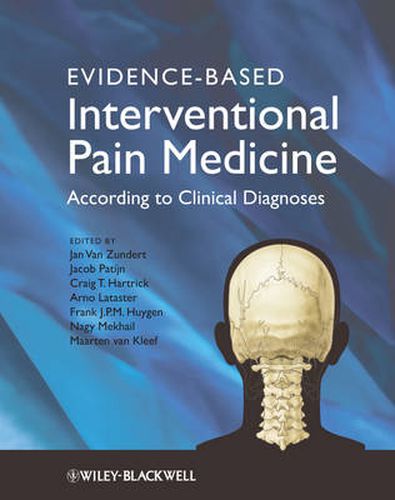Readings Newsletter
Become a Readings Member to make your shopping experience even easier.
Sign in or sign up for free!
You’re not far away from qualifying for FREE standard shipping within Australia
You’ve qualified for FREE standard shipping within Australia
The cart is loading…






Unrelieved chronic pain is a worldwide epidemic. Chronic pain has been subject to multiple international initiatives through the World Health Organization. Interventional Pain Medicine, the use of minimally invasive techniques to relieve pain, is the best approach when simpler measures such as physical therapy or medications fail. However, these procedures can be associated with significant risk and expense. Establishing uniformity in diagnostic criteria and procedural performance can reduce both morbidity and unnecessary procedures, and hence healthcare expenditures. While other texts explain how to perform these procedures, little focus has been given to diagnostic considerations: if and when these procedures should be performed. Evidence-Based Interventional Pain Medicine focuses on a balance between effectiveness and safety of interventional management for specific diagnoses, across all areas of chronic pain including: head, neck and shoulder pain; lower back pain; neuropathic pain syndromes; Complex Regional Pain Syndrome; pain in patients with cancer; and, vascular and visceral pain.
Evidence-Based Interventional Pain Medicine provides essential knowledge for anyone who uses, or intends to use, interventional pain techniques.
$9.00 standard shipping within Australia
FREE standard shipping within Australia for orders over $100.00
Express & International shipping calculated at checkout
Unrelieved chronic pain is a worldwide epidemic. Chronic pain has been subject to multiple international initiatives through the World Health Organization. Interventional Pain Medicine, the use of minimally invasive techniques to relieve pain, is the best approach when simpler measures such as physical therapy or medications fail. However, these procedures can be associated with significant risk and expense. Establishing uniformity in diagnostic criteria and procedural performance can reduce both morbidity and unnecessary procedures, and hence healthcare expenditures. While other texts explain how to perform these procedures, little focus has been given to diagnostic considerations: if and when these procedures should be performed. Evidence-Based Interventional Pain Medicine focuses on a balance between effectiveness and safety of interventional management for specific diagnoses, across all areas of chronic pain including: head, neck and shoulder pain; lower back pain; neuropathic pain syndromes; Complex Regional Pain Syndrome; pain in patients with cancer; and, vascular and visceral pain.
Evidence-Based Interventional Pain Medicine provides essential knowledge for anyone who uses, or intends to use, interventional pain techniques.